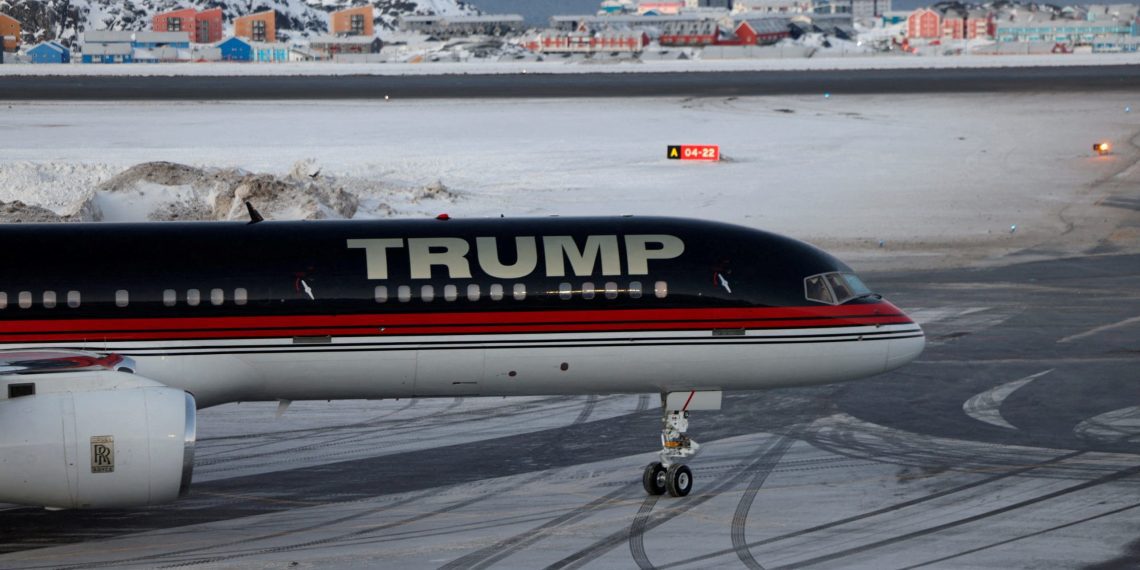In a stunning revival of one of his most controversial proposals, President-elect Donald Trump has doubled down on his desire to acquire Greenland, thrusting the icy Arctic island back into the geopolitical spotlight. Trump’s comments, warning Denmark to relinquish control of the island or face tariffs and potential military action, have sent shockwaves through international circles and reignited tensions among NATO allies.
The idea, dismissed as “absurd” by Denmark in 2019, has now resurfaced with newfound seriousness. Danish officials, bracing for another Trump administration, acknowledge the conversation around Greenland is evolving into a diplomatic minefield. “The ecosystem supporting this idea is totally different now,” one senior Danish official told CNN, while another admitted, “This seems much more serious.”
Why Greenland? A Strategic and Geopolitical Goldmine
Trump’s fascination with Greenland stems from its critical geostrategic importance. Sitting at the crossroads of the Arctic and Atlantic, Greenland is key to monitoring Russian and Chinese activity in the increasingly contested Arctic region. The island’s vast reserves of rare earth minerals and its strategic location for military operations make it a linchpin in global power dynamics.
The U.S. has long maintained a significant military presence on Greenland through a decades-old defense agreement with Denmark, including the Thule Air Base, the northernmost U.S. military installation. But Trump argues that outright control of Greenland is “an absolute necessity” for American national security.
“People don’t even know if Denmark has any legal right to it, but if they do, they should give it up,” Trump said during a press conference at Mar-a-Lago. “We need it for national security.”
Denmark Responds: Walking a Diplomatic Tightrope
Denmark, a stalwart NATO ally, is taking a cautious approach to Trump’s provocative statements. Danish Foreign Minister Lars Lokke Rasmussen signaled a willingness to engage in dialogue with the incoming administration. “We are open to a discussion on how we can cooperate more closely to ensure American ambitions are fulfilled,” Rasmussen said.
Yet, Denmark’s Prime Minister Mette Frederiksen has reaffirmed the island’s sovereignty. “Greenland belongs to the people of Greenland,” Frederiksen declared. Greenland’s Prime Minister Mute Egede echoed this sentiment, stressing that the island’s push for independence is its own matter, not one for external powers.
Europe Pushes Back: “Borders Are Not Negotiable”
The idea of the U.S. acquiring Greenland has drawn sharp criticism from European leaders. German Chancellor Olaf Scholz issued a firm statement, asserting, “The principle of the inviolability of borders applies to every country… no matter whether it’s a very small one or a very powerful one.” French Foreign Minister Jean-Noël Barrot added, “There is no question the European Union would allow an attack on its sovereign borders.”
The Independence Dilemma: A Double-Edged Sword
Greenland’s growing independence movement adds another layer of complexity. While the U.S. views independence as a potential security risk, fearing Russian or Chinese influence, Greenland’s leaders insist their future is theirs alone to decide. Independence could jeopardize Greenland’s NATO membership, creating uncertainty over the island’s geopolitical alignment.
A defense official acknowledged that Greenland’s independence could either stabilize the region or make it more volatile. “It could go either way,” the official said. “We’re in uncharted territory.”
The Arctic Race Heats Up
China’s growing collaboration with Russia in the Arctic and the melting ice caps have turned the region into a new frontier of competition. Joint air patrols and naval operations in Arctic waters signal an aggressive push by Beijing and Moscow to assert influence in the region. As climate change opens new shipping routes, the Arctic’s strategic value continues to rise.
Trump’s revived interest in Greenland underscores the urgency of these developments. “This place, Greenland, has tremendous geostrategic value to the world,” a U.S. defense official emphasized.
The Stakes: A Diplomatic Gamble
Acquiring Greenland would require significant investments in infrastructure, from icebreakers to patrol fleets. The Royal Danish Navy currently handles much of Greenland’s maritime responsibilities, a role the U.S. would have to assume. While Trump’s comments have sparked alarm, they also highlight the need for a broader discussion on Arctic strategy.
Whether Trump’s Greenland ambitions are genuine or a negotiation tactic remains unclear. But one thing is certain: this geopolitical gamble is set to test alliances, stir tensions, and reshape the Arctic’s role in global power struggles.









